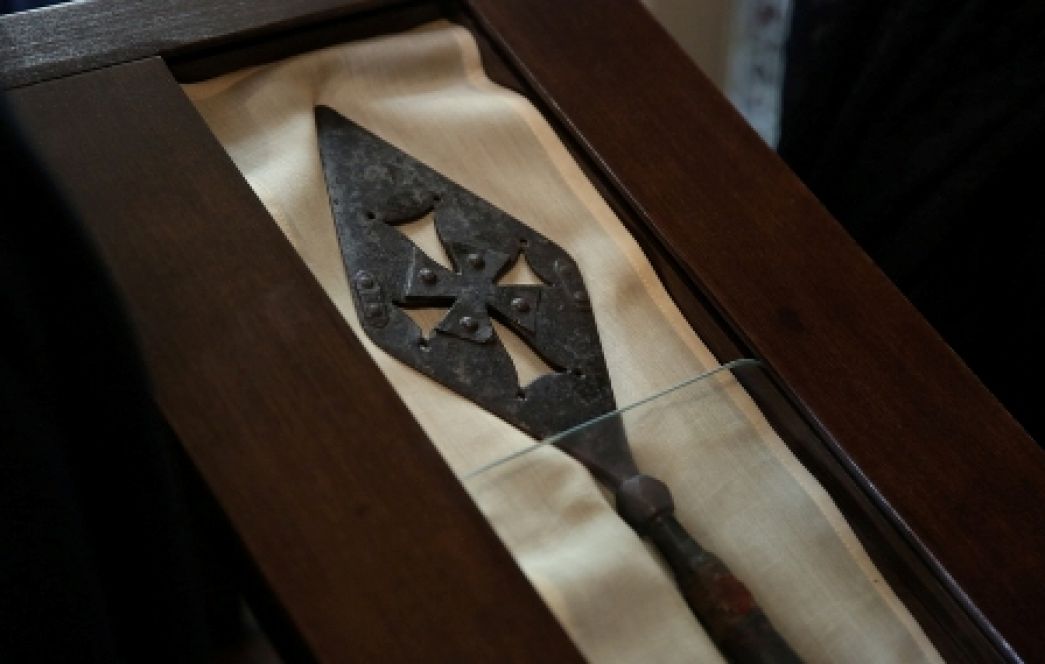Holy Lance ‘Geghard’ will be brought to the Mother Cathedral of Holy Etchmiadzin for the Feast of St. Thaddeus and St. Bartholomew
 23.11.2017
23.11.2017
In 2015, the Feast Day of St. Thaddeus and St. Bartholomew, the Founders of the Armenian Church, was declared as the pilgrimage day of the Holy Lance; by Pontifical Encyclical of His Holiness Karekin II, Supreme Patriarch and Catholicos of All Armenians. This year, the Holy Lance (Geghard) will be taken to the Mother Cathedral on December 2.
At 10:30 a.m. the faithful are invited to Holy Etchmiadzin, to participate in the Divine Liturgy being offered in the Mother Cathedral on the Feast of the first Illuminators of Armenian Church. The faithful will have the opportunity to kiss it and receive blessings from the miraculous Holy Lance.
The Holy Lance will remain on display in the Cathedral until the evening.
* * * * *
One of the numerous Holy relics of the Armenian Church is the Holy Lance (Geghard), which is also used to bless and consecrate the Holy Chrism (Muron) of the Armenian Church.
The Holy Geghard is the tip of the spear which the Roman soldier used to pierce our Lord Jesus Christ, while he hung on the cross. The Holy Gospel speaks about it: “When they came to Jesus and saw that he was already dead, they didn’t break His shins but one of the soldiers pierced his sides by a javelin and there was immediately blood and water” (Rom. 19: 33-34).
According to ecclesiastical tradition, Apostle St. Thaddeus, one of the 12 disciples of Christ, brought this sacred relic of the Lord to the Armenian world in the first century. For centuries the Holy Christian relic has been kept at different monasteries in historical (western) Armenia, and since the 13rd century in Ayrivank, which afterwards was renamed Geghardavanq in honor of the Holy Geghard.
In the second half of the 18th century the Holy Geghard was brought to the Mother See of Holy Etchmiadzin and is still kept in the spiritual center of All Armenians.
According to historical information, the Holy Geghard with is miraculous power has dispelled mental and physical illnesses. For that purpose, during the 18-19th centuries, it has been taken several times to different provinces of Armenia, as well as it has been sent to Tbilisi, Georgia.


